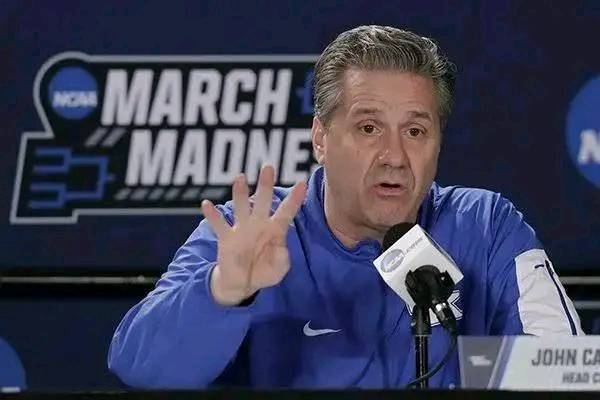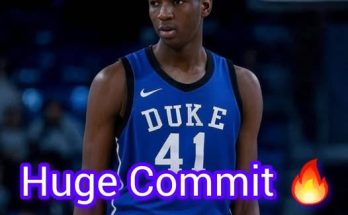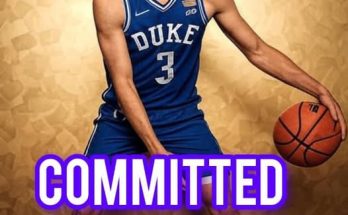John Calipari Breaks His Silence! Ex‑Kentucky Coach Reveals Jaw-Dropping Truth Behind His Sudden Exit — A Shocking Confession That Has Big Blue Nation Reeling and the College Hoops World
In an emotional and unexpected video filmed from his living room couch, Hall‑of‑Fame coach John Calipari delivered a bombshell confession that has left Big Blue Nation — and the entire college hoops community — stunned. After 15 storied years at the helm of Kentucky basketball, Calipari didn’t just announce his departure. He delivered a stark declaration that the program needed “another voice,” shattering assumptions and reigniting debates about what lies at the core of one of the sport’s most iconic dynasties
Sitting relaxed yet resolute, Calipari began with a tone of reflection and gratitude. “This is a dream job. It was my dream job,” he admitted, every word heavy with sincerity He didn’t shy from the prestige or the history — “anybody in our profession looks at Kentucky and says, ‘That is the bluest of blue’” — but he followed swiftly with a seismic admission: “The last few weeks, we’ve come to realize that this program probably needs to hear another voice. … The fans need to hear another voice”
It was not just a resignation—it was a confession. On the surface, it spoke to a shift in leadership, but underlying that statement was a volley of unspoken tensions: program expectations, shifting dynamics in college athletics, and a coach’s growing realization that sometimes, legacy must make way for renewal
John Calipari arrived at Kentucky in April 2009, stepping into one of college basketball’s most pressure-loaded roles Over the next decade and a half, he built a powerhouse through his trademark “one‑and‑done” recruiting approach, earning a national title in 2012 and four Final Four appearances (2011, 2012, 2014, 2015)
Calipari wasn’t just collecting wins. He became a de facto conveyor belt of NBA talent — producing 35 first-round picks, including John Wall, Anthony Davis, and Karl-Anthony Towns — but his teams often faltered late in the tournament, leaving fans hungry for deeper runs
In 2021, Kentucky missed March Madness altogether. Then, a historic upset by No. 15 Saint Peter’s in 2022. Another first-round shocker to No. 14 Oakland in 2024. Three straight underwhelming seasons — and the campus was buzzing with criticism
Financially, Kentucky was locked in. Calipari had a “lifetime” contract: firing him would’ve triggered a $33 million buyout (downgrading to $27 million after 2024‑25) So even as fans and media clamored for change, the University stood by their veteran coach — until the message from the coach himself became impossible to ignore.
Calipari’s video felt different—not contrived, not rehearsed; deeply personal. He spoke of late-night conversations with his wife, Ellen, their shared reflection on the season and their shared realization: “this program needs another voice”
It wasn’t purely results-driven; Calipari acknowledged the love he had for the players, staff, and fans. Yet he pointed to a broader issue: the relationship between the program and its passionate but demanding fan base. He put it bluntly — Kentucky needed fresh energy, new leadership, new inspiration. Perhaps more tellingly, he recognized that the Wildcats had become stagnant, needing someone to re-ignite the spark
The admission stunned. Rarely does a top-tier coach suggest that his own institution needs a different voice. It implied a tension, a walled-in tradition that perhaps had outgrown its messenger.
It also hinted at Calipari’s own self-awareness: he loved coaching (“I love coaching young people … it’s what I do, it’s who I am” His statement wasn’t a resignation from the game—it was a resignation from this moment, this role, this program
Strikingly, Calipari never mentioned Arkansas in the video — although the Razorbacks announced his hiring just a day later, in a five-year, $7 million-per-year deal with bonuses
So why the silence? In saying “opportunities have been presented to us … we’re discussing them as a family,” Calipari created space in his statement — a moment of ambiguity that sparked instant media speculation
He refused to confirm or deny, keeping the statement focused on Kentucky’s needs, not his career. From a PR standpoint, it was masterful — deeply respectful to UK and authentic in message.
Arkansas athletic director Hunter Yurachek praised Calipari as “one of the premier coaches in college basketball,” giving him a warm welcome in Fayetteville But Calipari’s Kentucky speech felt like an exit interview, not an announcement of a new beginning — an acknowledgment that his departure, and perhaps the emotional toll of trying to stay at the top, necessitated a clean break
The reaction from Kentucky fans was instantaneous and polarized:
Devastation: For die-hard UK supporters, Calipari was their coach — the man who restored Kentucky’s blue‑blood status. His departure felt like the end of an era .Validation: Others, fatigued by recent postseason failures, saw his departure as overdue — a reset sparked by internal recognition rather than external pressure .Curiosity: If Calipari said Kentucky needed another voice, who would deliver it? Names like Dan Hurley, Scott Drew, and Billy Donovan entered the conversation Skepticism: Some wondered whether financial reasons underpinned the exit — could it really just be without cost or controversy? .
One rumor suggested a late “counteroffer” from UK. Broadcaster Dick Gabriel claimed Calipari proposed deal terms and UK declined — but he later walked that back, undercutting the drama and reframing the departure as entirely voluntary
Calipari’s confession didn’t just reverberate through Lexington; it shook the broader college basketball world. His departure underlined two seismic shifts:
The Pressure of Instantaneous Expectations
The combination of one-and-done recruiting, the transfer portal, and NIL deals has thrown coach–program balance into disarray. Kentucky’s failure to meet expectations — once again — underscored how fragile legacy can be .Coaching as Authenticity
When a coach voluntarily acknowledges a program’s need for change, it shifts the narrative. It says today’s fans demand more than win—they demand vision, alignment, and connection. That Krasinski moment might have started with Calipari, but it could set a new precedent .
Additionally, Calipari’s pivot to Arkansas gave the Razorbacks instant credibility and renewed national focus. It will spark critical matchups within the SEC and put a magnifying glass on how different leadership can shape two storied rival programs.
For Kentucky:
The search is on. Athletic Director Mitch Barnhart has vowed a swift replacement — but the question remains: who can reset expectations in a program that demands excellence at every whistle? Candidates include UConn’s Dan Hurley, Baylor’s Scott Drew, and former assistant Billy Donovan
For Calipari:
He’s not retiring. Arkansas is his opportunity — to bring “a voice” that blends NCAA success with player development, to build anew under SEC scrutiny. His first year produced a Sweet 16 appearance, but Arkansas expects more .Calipari’s moment has marked a cultural turning point: coaches acknowledging when the narrative has shifted beneath them, when their legacy becomes a weight they must place down. Future coaching decisions may echo this — less defensiveness, more self-awareness, more structural renovation
John Calipari’s statement wasn’t just a resignation — it was a revelation. In admitting that Kentucky needed another voice, he admitted a breaking point: that even in dynasties, clarity and change are sometimes more valuable than continuity.
This confession has changed the way we think about leadership in college sports. It marks a shift from coaching as singular authority to coaching as communal responsibility — where balanced reflection matters as much as wins.
Kentucky — and all of college basketball — is breathing in a new era. A voice has stepped down. A new voice will rise. And John Calipari’s honesty has ensured this moment will define more than seasons or records — it will define how programs think about their voices, their values, and their leaders.



